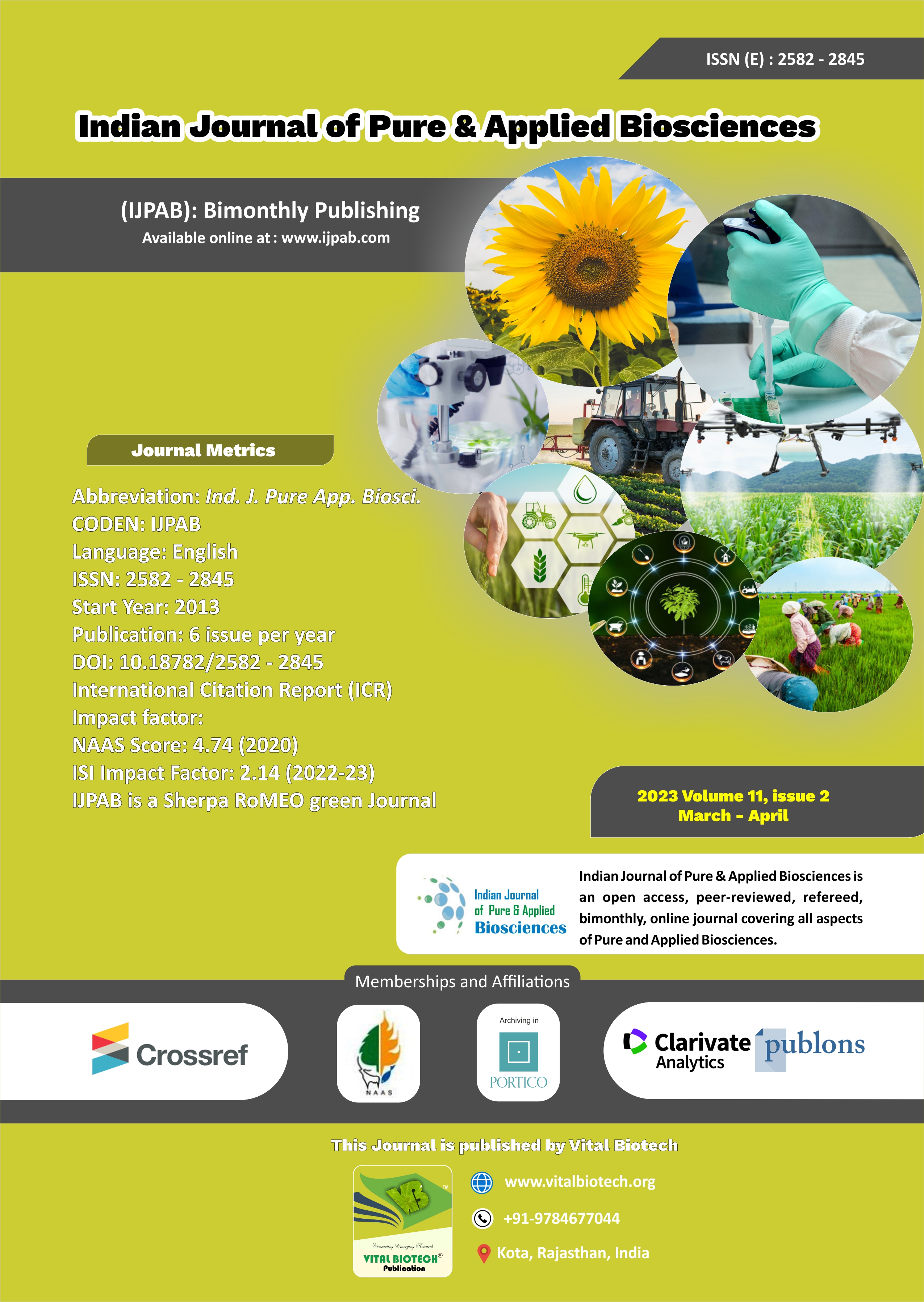-
No. 772, Basant Vihar, Kota
Rajasthan-324009 India
-
Call Us On
+91 9784677044
-
Mail Us @
editor@ijpab.com
Indian Journal of Pure & Applied Biosciences (IJPAB)
Year : 2023, Volume : 11, Issue : 2
First page : (50) Last page : (60)
Article doi: : http://dx.doi.org/10.18782/2582-2845.8996
Ameliorative Effect of Tamarind Leaves (Tamarindus indica) Aqueous Extract against Inflammation via Modulating Pro-inflammatory and Anti-inflammatory Mediators in Wistar Rats
Khushbu Dalwadi1* ![]() , D. N. Rank2, V. H. Patel1
, D. N. Rank2, V. H. Patel1
1Laboratory of Foods and Nutrition, P. G. Department of Home Science,
Vallabh Vidhyanagar-388120, Gujarat, India
2College of Veterinary Science & Animal Husbandry,
Anand Agricultural University, Anand-388001, Gujarat, India
*Corresponding Author E-mail: khushbudalwadi18@yahoo.com
Received: 25.02.2023 | Revised: 29.03.2023 | Accepted: 12.04.2023
ABSTRACT
Inflammation affects many illnesses, like metabolic conditions, psychotic neurodegenerative disorders, and cancer. Hence, many anti-inflammatory drugs are prescribed by professionals. These drugs may have adverse effects. Many natural and plant-origin bioactive compounds have anti-inflammatory properties. In this study, the anti-inflammatory effect of tamarind leaves was evaluated using an animal model. The present research concluded that the tamarind leaf supplementation decreased cholesterol, triglycerides LDL and VLDL levels and hence possess hypolipidemic effects on rats. Tamarind leaves supplementation also showed an antioxidant effect through increasing SOD, catalase and reduced glutathione activities. Tamarind leaves supplementation also showed an anti-inflammatory effect by decreasing IL-6 and COX-1 as well as increasing IL-10 levels in serum and kidney, but no significant difference was observed in TNF-α, COX-2 and 5- LOX levels. Tamarind leaves reduce oxidative stress and inflammation by restoring the body's natural antioxidant equilibrium and controlling the production of inflammatory mediators. Thus, tamarind leaves can be used as a functional food and nutraceutical to reduce inflammation.
Keywords: Tamarind leaves, Inflammation, Oxidative stress, Anti-inflammatory property.
Full Text : PDF; Journal doi : http://dx.doi.org/10.18782
Cite this article: Dalwadi, K., Rank, D. N., & Patel, V. H. (2023). Ameliorative effect of Tamarind leaves (Tamarindus Indica) aqueous extract against the inflammation via modulating pro-inflammatory and anti-inflammatory mediators in Wistar rats, Ind. J. Pure App. Biosci.11(2), 50-60. doi: http://dx.doi.org/10.18782/2582-2845.8996


